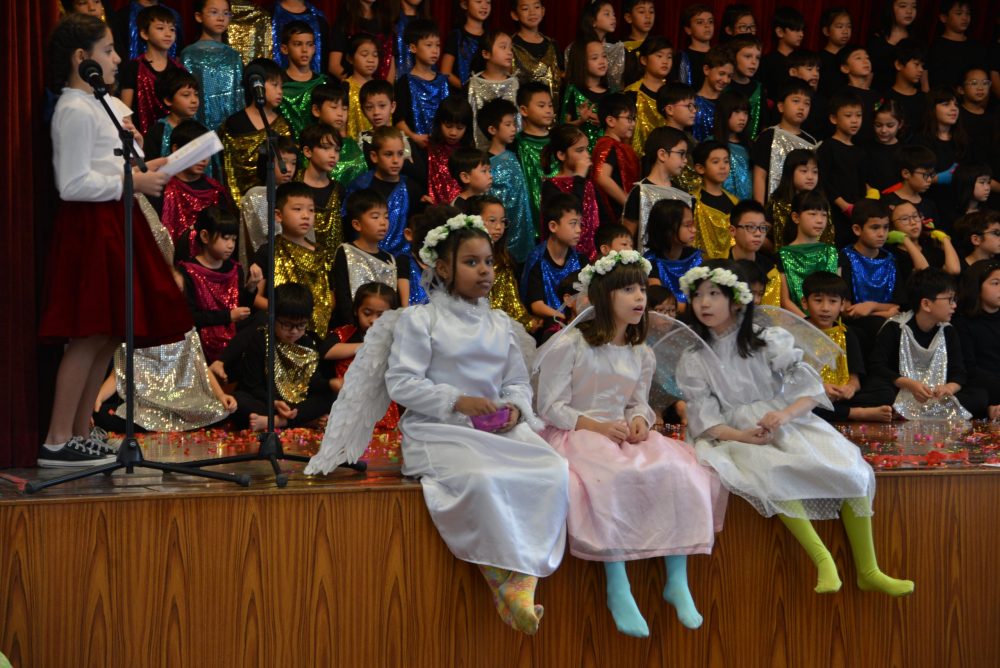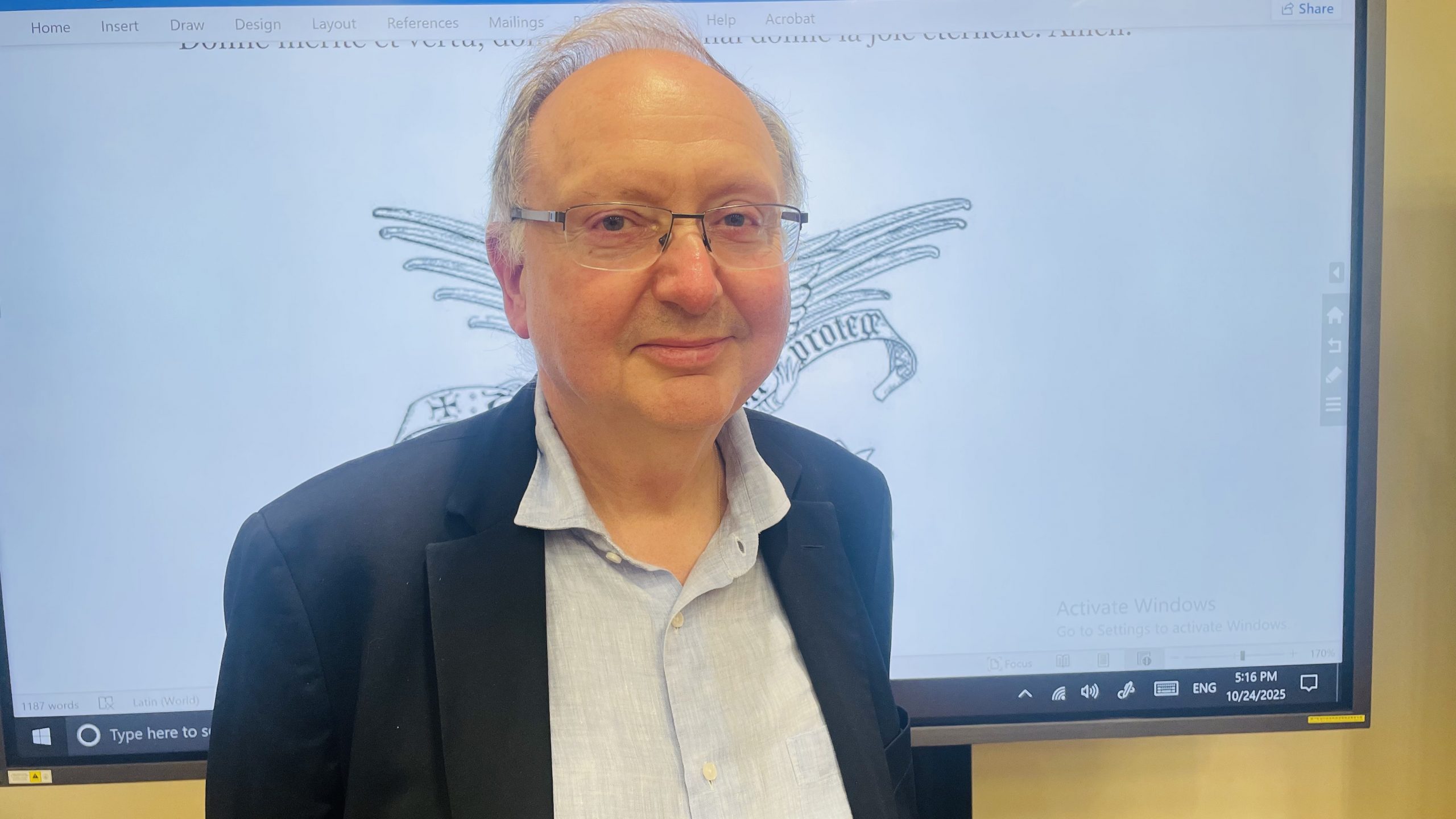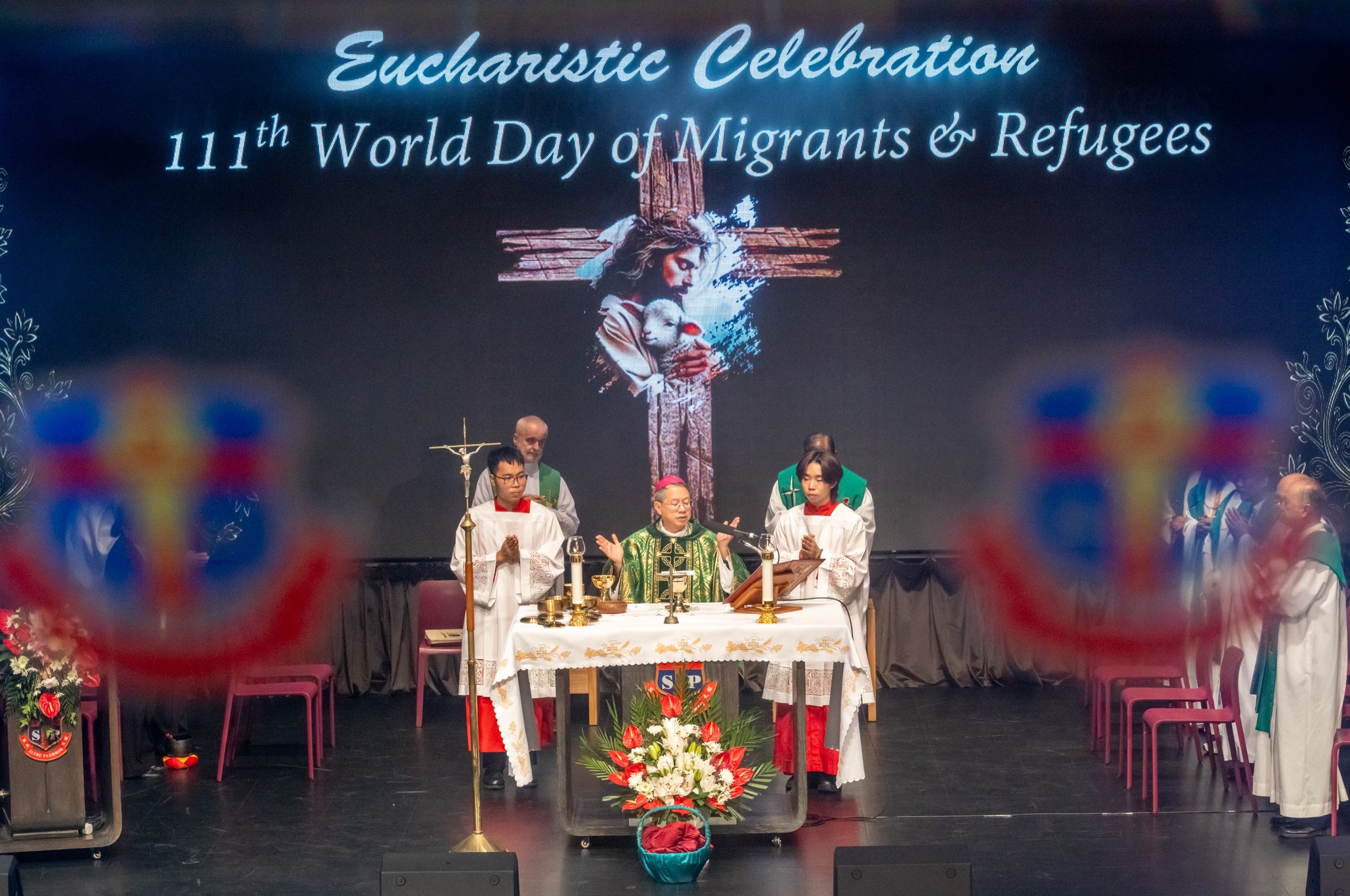Marco Carvalho
Under the guise of theatrical performances with a strong musical component, by setting up the Nativity scene or organizing activities aimed at students with special needs, coming December, the joy of Christmas will reach most of Macau’s schools. But the commercial noise that surrounds the season, along with irrefutable cultural differences, does not always allow for the true meaning of the Nativity to be assimilated.
Christmas came early for almost four hundred children who attend the Macau Portuguese School, wrapped in a shower of confetti and a flood of colors and songs that highlighted core values such as sharing, compassion, generosity and respect.
Last Saturday, the school’s gymnasium hosted the institution’s traditional Nativity Play. This year, in accordance with the sanitary rules and regulations prescribed by the Education Bureau, the celebration was divided into two different events.
In a room less crowded than usual, a reduced number of parents saw the children that are enrolled in the 1st and 2nd grade perform first. An hour later, the 3rd and 4th grade students took to the stage, voicing a clear message. Kindness and sharing, they claim, are the reason why Christmas is such a joyful and brightful season: “They are always very happy to observe and commemorate this season, which is a very special season not only for them, but also for us, of course. With the songs they perform, I try to make them rekindle – and in the case of those who don’t know, make them know – Portuguese traditions. We are talking about the religious traditions, but also our very own Christmas treats. I try to make them understand, even when they have a non-Portuguese background, how the Christmas spirit manifests itself in Portugal,” Ana Isabel Carreiro told O CLARIM. “I try to offer them as much context as possible, I try to explain to them the meaning of the lyrics and I try to make them understand that Christmas is, first and foremost, the celebration of the birth of the Divine Infant. Christmas is not exactly about receiving a gift from Santa, it is the birth of Jesus. That’s what we are celebrating. I always try to convey this message to them, of how important is the birth of the Divine Infant,” the Music teacher clarifies.
But in a city with a very different cultural matrix, it is not always easy to convey the true meaning of Christmas. A challenge that, at the Macau Portuguese School, has been exacerbated over the last few years, with the enrolment of a growing number of students that don’t have the Portuguese language as their mother tongue: “The greatest challenge in putting on a play this is, increasingly, the language,” Mrs. Carreiro confesses. “I have been organizing these Nativity plays for the last twelve years and back then this wasn’t an issue, because most of the students were Portuguese or spoke the language. Now one of the challenges lies in teaching the language correctly so that they can sing the songs. But children’s brains are like sponges, they absorb everything very easily. They react very well and, when they’re on stage, they end up meeting the requirements that are needed for everything to succeed,” the educator emphasizes.
An unbearable lightness
At Saint Paul’s School, language is not an issue, but the irrefutable weight of a cultural matrix that sees Christmas as an imported celebration makes itself felt with a different density. The school, which is grounded in the principles and values promoted by the Dominican Order, tries to convey the meaning of the Nativity to a largely non-Catholic student body, but the effort is not always successful, Father Lawrence The Reh acknowledges: “Christmas is not exactly a novelty for our students. When December comes, Christmas decorations and the Nativity scene can be seen everywhere and the School makes an effort with the aim of familiarizing our students with Christmas,” the Burmese missionary claims. “When Christmas is near the school tries to help them feel that Christmas is coming. At Saint Paul’s school, during the Advent season, the Religion class teachers take their students to the Christmas manger to explain to them about the manger, the coming of Christmas and the incarnation of the Lord Jesus. It is easy to explain to them about Christmas by telling them the story of the birth of Christ. But it is not easy to entirely convey the meaning of Christmas, not many are ready to listen to it,” the Dominican priest admits.
In both the Macau Portuguese School and Saint Paul’s School, the Nativity scene is one of the most essential elements of the Christmas celebrations. Built in the Saint Paul’s chapel, the representation of the humble manger where Christ was born is assembled with the precious help of the school’s Art teachers and provides the perfect background for the Eucharistic celebration with which the School celebrates the Nativity on the last day before the Christmas break: “Before the Christmas holidays, on December 18th, the whole school comes together to celebrate the Advent Mass. It reminds the students and teachers about the coming of Christmas. At the end of the Mass, the whole school attends a few performances. After that celebration, the students in each class go back to their respective classrooms to celebrate with their classmates and teachers. Each class has its celebration,” Father Reh explains. “However, this year, because of the Covid-19 pandemic, having in mind the limitations imposed on the number of people that can gather in the same place, we asked a limited number of students to attend Mass at the school hall and the rest of the students will be in their classroom, where they will follow the celebration by a live stream video. This is the best way to ensure that the message reaches the entire school,” the Dominican missionary claims.
But at Saint Paul School, Christmas is also synonymous with solidarity and fraternity, the Burmese priest stresses: “There are other Christmas activities organized by the student association and by the students who are part of the Best Buddies association, which promote an initiative aimed at students with intellectual disabilities and special needs. They will play together and take part in the activities together,” Father Lawrence T. Reh illustrates.
Sharing and generosity are also key words at the Macau Portuguese School. Next week, the Mathematics and Experimental Sciences Department of the School is going to promote a Christmas lucky draw. The proceeds will once again be donated to Caritas . Last summer, the same department had already endowed the Catholic relief organization with a 7500 patacas donation.


 Follow
Follow


